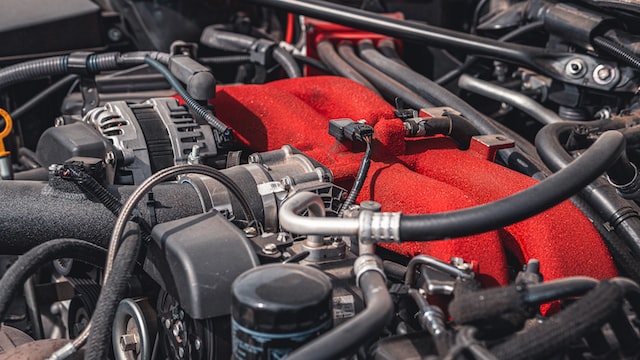
Taking good care of your car’s engine is one of the most important things you can do if you want to keep it running smoothly. If you don’t know much about engines, this can seem like a huge task: How often should I get my oil changed? What other fluids should I check regularly? When should I replace my belts and filters? Don’t worry! In this article we’ll look at all these questions so that by the end of it you’ll have everything you need to keep your car going strong for many miles to come.
Get your oil and filter changed regularly
You may not realize it, but your engine is one of the most important parts of your car. Without an engine, you wouldn’t be able to start it up and drive around!
Your car’s engine needs oil for lubrication. Without oil in the engine, it will quickly wear out and break down. It’s also important that you keep your oil clean by changing it from time to time (usually every 10,000 km). Keep in mind that this interval is usually only applicable if you’re driving at normal speeds with no excessive idling or stop-and-go traffic; if you frequently drive at high speeds or are often stuck in traffic jams (which causes extra heat build-up), you should change your oil more often.
Get your coolant and brake fluid topped up
If you’re going to have your car repaired, it’s a good idea to make sure that everything is in proper working order beforehand. One of the easiest ways to do this is by checking and topping up the coolant and brake fluid.
Coolant levels should be checked regularly. If they’re low, get them topped up immediately; if they’re too high (more than 1/2 inch above the top of the reservoir), it can cause problems in other parts of the engine as well as being very expensive to replace. Brake fluid needs only be checked when there are issues with braking performance or when there’s an unusual smell from underneath your car – if so, get it checked out as soon as possible!
Keep the air filter clean
The air filter cleans dirt from outside air before it enters the engine, so changing it regularly will help keep dust from getting into your engine over time and causing damage from wear-and-tear on moving parts inside the motor compartment.
Keep all fluids topped up
There are many fluids in a modern car — engine coolant (also known as antifreeze), transmission fluid, brake fluid and power steering fluid among others — so it’s important to make sure they’re all topped up when they need replacing or refilling. Most vehicles have an indicator light that will come on if there’s a problem with one of these fluids so it’s worth checking this regularly too if nothing else seems amiss with your vehicle!
Keep an eye on your car’s warning lights
If you keep an eye on your car’s warning lights, you’ll know if a problem is serious. It’s important to check the manual for information on what each warning light means and how to fix it. This can help prevent bigger problems down the road!
Check your tyres every couple of weeks
You should also check your tyres regularly for signs of wear or damage, such as bulges in the sidewall (which can be caused by nails or other objects embedded in the tyre). Checking the tread depth is another important part of routine maintenance, because you’ll need to replace your tyres before they become too worn to leave safe driving behind.
To check tyre pressure:
- Remove the cap from one of your vehicle’s tyres and look inside; this will reveal if there are any nails or other objects stuck inside it that might cause a puncture. If you find something suspicious, call a mechanic right away—you don’t want to risk being on the road with dangerously underinflated tyres!
Check for leaks
If your car is leaking fluid, it’s important to get it fixed right away. Oil, brake fluid, coolant and power steering fluid can all be dangerous if they leak out of the engine and onto the ground. Leaks also lead to premature wear on some components. Because of this, it’s a good idea to check the level of these fluids periodically—especially if you’re driving your car regularly and notice a change in performance or smells something funny (like burning oil).
Don’t just top up fluids without finding out what the problem is
A lot of people will fill their car with a new set of fluids and not think about it again. But if your car isn’t running properly, you may be wasting money or doing more harm than good by topping up the wrong thing. If there’s an issue with any of your fluids, take it to a mechanic who can diagnose and fix the problem quickly—you don’t want to waste time driving around with low fluid levels in case they need topping up again soon!
If you don’t know what the problem is, take it to a mechanic.
If your warning lights are on and you don’t know why (or how serious), always take your car for an inspection by a professional mechanic in Nerang before trying anything yourself—they’ll easily be able to tell if something needs fixing along with providing tips on keeping things running smoothly in future too.
Change old, worn belts regularly
When you’re inspecting your vehicle’s belts, check for cracks, frays and dryness. If you can’t see any signs of damage and the belt still has some life left in it (or if it’s been a while since you’ve changed it), then changing it is probably a good idea. But if there are any signs of damage, don’t wait. Replace the belt immediately because leaving an old belt could result in serious engine problems later on down the road.
Drive carefully at low speeds and avoid revving the engine unnecessarily
Driving smoothly at low speeds and avoiding revving the engine unnecessarily is vital for keeping your engine in good condition. This applies to both quick acceleration and sudden braking, which can cause problems with your car’s oil system.
For example, if you’re about to drive up a hill, it’s better to get into third gear and keep the revs below 4500 rpm until it starts going up—rather than accelerating all the way from first through fourth gears, then slamming on the brakes at the top of the hill and reversing down again immediately afterwards (that would be very bad).
Also avoid driving at high speeds for long periods of time; if possible try not to exceed 60mph (100km/h) even on longer journeys as this puts extra strain on components like suspension springs which aren’t designed to handle such high loads constantly over long periods of time without being replaced regularly every few years anyway.
Don’t leave your car sitting idle for long periods
Take it for a drive once a week if you can.
If you’re like most people, your car probably spends a lot of time sitting idle. That’s not good for the engine. Take it for a drive once a week if you can—this will keep the oil circulating and prevent dirt from building up on the engine. It’ll also keep the battery charged, so that when you do need to drive somewhere important and your car won’t start because its battery is dead, at least it’ll have some juice in there to give it an extra kickstart (if that doesn’t work, call roadside assistance).
You can tell how well your car is running by looking at its warning lights, checking its fluids and listening to its engine. As long as you keep an eye on these things and drive carefully, you shouldn’t have any problems with your engine.






